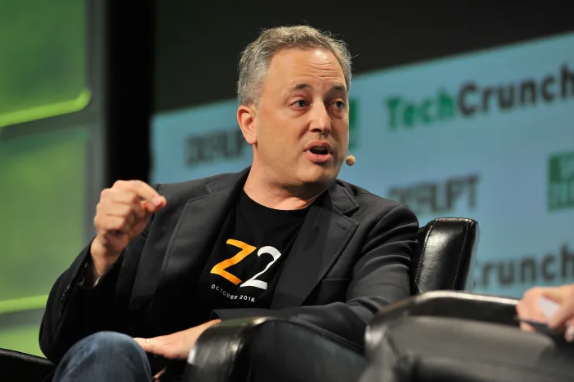The rapid rise of DeepSeek, a Chinese AI company, has ignited a firestorm of controversy, raising critical questions about intellectual property theft, national security, and the increasingly competitive landscape of artificial intelligence. David Sacks, a prominent figure in tech and a former advisor to a high-profile political figure, has publicly accused DeepSeek of leveraging OpenAI's models to train its own, a claim that has added fuel to the already intense scrutiny surrounding the company. This accusation, coupled with concerns about the potential implications of DeepSeek's technology, has prompted investigations and even bans on the use of its AI, highlighting the growing tensions in the global race for AI dominance.
DeepSeek's sudden prominence stems from its publicly available, high-performing AI models and free chat applications. These offerings, which quickly gained popularity, have placed the company firmly in the spotlight, attracting the attention of both users and government officials. However, this rapid ascent has also brought increased scrutiny, with Sacks' accusations of intellectual property theft leading the charge.
In an interview, Sacks asserted that "substantial evidence" exists to support the claim that DeepSeek "distilled" knowledge from OpenAI's models. He likened this process to theft, suggesting that DeepSeek essentially reverse-engineered OpenAI's models by analyzing their responses and using this information to train its own AI. While Sacks did not disclose the specific nature of this evidence, his allegations have nonetheless cast a shadow over DeepSeek's achievements. He further suggested that OpenAI is likely displeased with DeepSeek's alleged actions, implying potential legal or competitive ramifications.
The accusations of IP theft are not the only challenge facing DeepSeek. U.S. government officials are also examining the potential national security implications of DeepSeek's technology. Reuters reported that the National Security Council, a key advisory body to the President on foreign policy and national security, is conducting a review of DeepSeek's applications. The specifics of this review remain confidential, but it suggests that the U.S. government is concerned about the potential risks associated with the widespread adoption of DeepSeek's AI, particularly given its Chinese origins.
Adding to the growing list of concerns, the U.S. Navy has reportedly banned the use of DeepSeek's AI, citing "potential security and ethical concerns." This ban underscores the seriousness with which the U.S. military is taking the potential risks posed by DeepSeek's technology. While the specific reasons for the ban have not been publicly disclosed, it suggests that the Navy has identified vulnerabilities or ethical considerations that it deems unacceptable.
These combined challenges – accusations of intellectual property theft, national security reviews, and outright bans – paint a complex picture of the challenges facing DeepSeek. The company's rapid rise has been met with an equally swift wave of scrutiny, raising fundamental questions about fair competition, technological ethics, and the potential for AI to be used in ways that compromise national security.
The controversy surrounding DeepSeek also highlights the broader issues facing the AI industry. As AI technology becomes increasingly powerful and pervasive, questions of intellectual property, data privacy, and ethical development become ever more pressing. The case of DeepSeek underscores the need for clear guidelines and robust mechanisms for addressing these challenges. It also serves as a reminder that the race for AI dominance is not just about technological innovation, but also about ensuring that this technology is developed and used responsibly.
The allegations against DeepSeek raise complex legal and technical questions. Proving that DeepSeek improperly used OpenAI's models will likely require extensive investigation and analysis. Experts in the field of AI will need to examine DeepSeek's models to determine whether there is evidence of unauthorized copying or adaptation. This process could involve analyzing the models' architecture, training data, and performance characteristics.
The national security concerns surrounding DeepSeek are equally complex. Governments are increasingly aware of the potential for AI to be used for malicious purposes, such as cyberattacks, disinformation campaigns, and even autonomous weapons systems. The fact that DeepSeek is a Chinese company adds another layer of complexity, given the geopolitical tensions between the U.S. and China. U.S. officials are likely concerned about the potential for DeepSeek's technology to be used by the Chinese government or military, or for DeepSeek to be compelled to share its technology with the Chinese authorities.
The U.S. Navy's ban on DeepSeek's AI is a clear indication of the seriousness with which these concerns are being taken. While the specific reasons for the ban have not been publicly disclosed, it is likely that the Navy has identified specific vulnerabilities or risks associated with the use of DeepSeek's technology. This ban serves as a warning to other companies that are developing AI technology, particularly those with ties to foreign governments.
The DeepSeek controversy is just one example of the many challenges facing the AI industry. As AI technology continues to advance, it is crucial that we address the ethical, legal, and security implications of this technology. This requires a collaborative effort between governments, industry, and academia. We need to develop clear guidelines and standards for the development and use of AI, and we need to ensure that these guidelines are enforced.
The future of AI depends on our ability to address these challenges. If we fail to do so, we risk creating a world in which AI is used in ways that are harmful or unethical. The DeepSeek case serves as a wake-up call, reminding us of the importance of responsible AI development. It underscores the need for transparency, accountability, and collaboration in shaping the future of this transformative technology. The coming months and years will be critical in determining how we navigate the complex landscape of AI and ensure that it benefits humanity as a whole. The DeepSeek situation offers valuable lessons about international competition, intellectual property rights, and the delicate balance between innovation and national security in the age of artificial intelligence. The outcomes of the investigations and policy decisions surrounding DeepSeek will likely have significant implications for the future of the AI industry and the global balance of technological power.


Post a Comment